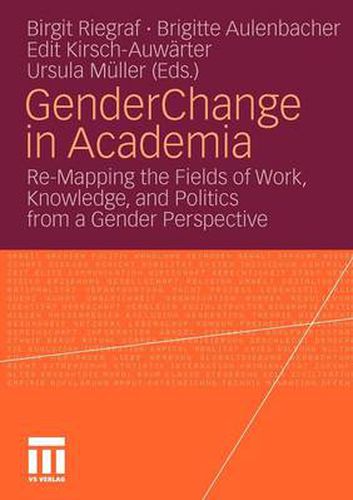Readings Newsletter
Become a Readings Member to make your shopping experience even easier.
Sign in or sign up for free!
You’re not far away from qualifying for FREE standard shipping within Australia
You’ve qualified for FREE standard shipping within Australia
The cart is loading…






This title is printed to order. This book may have been self-published. If so, we cannot guarantee the quality of the content. In the main most books will have gone through the editing process however some may not. We therefore suggest that you be aware of this before ordering this book. If in doubt check either the author or publisher’s details as we are unable to accept any returns unless they are faulty. Please contact us if you have any questions.
Editors’ Foreword
The fundamental changes currently taking place in the national and international science landscapes can no longer be overlooked. Within those changes, reforms do not go ‘as planned’ but, as is always the case with processes of rationali- tion, have a series of unintended effects. At the same time it becomes incre- ingly clear who in this process are the winners and who are the losers, although this is still subject to fluctuation and change. This can be illustrated by two - amples from current events: Where the range of taught courses is concerned, as part of the Bologna Process the new structuring of student study paths and their organisation is aimed at unifying the European area of science to ensure a study that is equally permissive and efficient. However, it is to be deplored that the mobility of s- dents has become more restricted because of an increasing specialisation in the available study paths. Also, bachelor degrees do not meet with the anticipated high response from the labour market in all countries, so that the master’s degree is becoming more or less a ‘must’, while at the same time the number of study places on master’s courses is limited. Instead of the intended reduction in the duration of study time in comparison to the previous German ‘Magister’ and ‘Diplom’, rather a prolongation in the duration of studies has been recorded.
$9.00 standard shipping within Australia
FREE standard shipping within Australia for orders over $100.00
Express & International shipping calculated at checkout
This title is printed to order. This book may have been self-published. If so, we cannot guarantee the quality of the content. In the main most books will have gone through the editing process however some may not. We therefore suggest that you be aware of this before ordering this book. If in doubt check either the author or publisher’s details as we are unable to accept any returns unless they are faulty. Please contact us if you have any questions.
Editors’ Foreword
The fundamental changes currently taking place in the national and international science landscapes can no longer be overlooked. Within those changes, reforms do not go ‘as planned’ but, as is always the case with processes of rationali- tion, have a series of unintended effects. At the same time it becomes incre- ingly clear who in this process are the winners and who are the losers, although this is still subject to fluctuation and change. This can be illustrated by two - amples from current events: Where the range of taught courses is concerned, as part of the Bologna Process the new structuring of student study paths and their organisation is aimed at unifying the European area of science to ensure a study that is equally permissive and efficient. However, it is to be deplored that the mobility of s- dents has become more restricted because of an increasing specialisation in the available study paths. Also, bachelor degrees do not meet with the anticipated high response from the labour market in all countries, so that the master’s degree is becoming more or less a ‘must’, while at the same time the number of study places on master’s courses is limited. Instead of the intended reduction in the duration of study time in comparison to the previous German ‘Magister’ and ‘Diplom’, rather a prolongation in the duration of studies has been recorded.